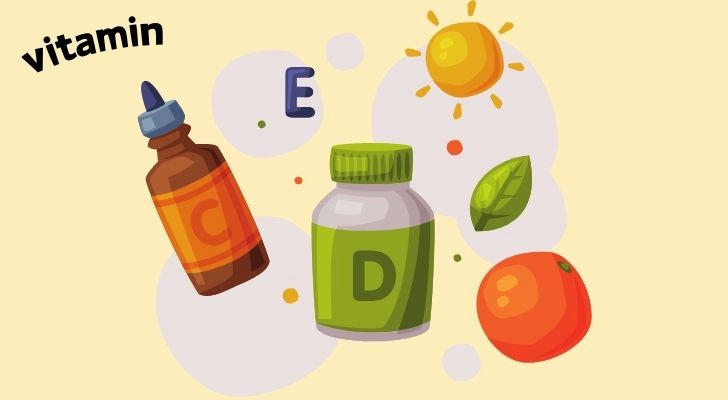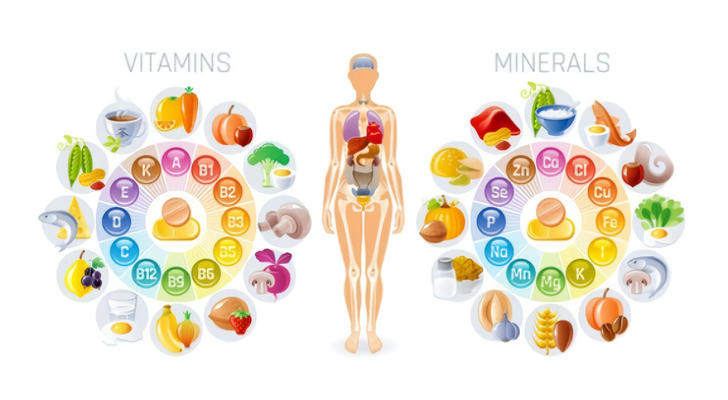Vitamin Supplements: Common Myths You Need to Know

In recent years, vitamin supplements have become increasingly popular as a convenient way to boost health and prevent diseases. Many people use these supplements to fill gaps in their diet, especially when they lead busy lives. However, using supplements incorrectly or excessively can pose health risks. Understanding their true effects and proper use is important. Here are some common myths about vitamin supplements and the facts behind them:
1. Myth 1: All Vitamin Supplements Are the Same

Explanation: Not all vitamin supplements are created equal. Different brands and types can vary significantly in their formulas, how well they are absorbed, and their effectiveness. For example, natural vitamin E and synthetic vitamin E have different effects on the body.
A 2011 study found that natural vitamin E is more effective as an antioxidant than its synthetic counterpart. Natural vitamins often come with additional beneficial compounds found in whole foods, which can make them more effective. On the other hand, synthetic vitamins might lack these extra benefits but can be effective in certain situations, like synthetic vitamin D3, which works similarly to its natural form.
Suggestion: When choosing supplements, look for reputable brands and read labels carefully. It’s also a good idea to select products based on individual health needs and scientific evidence.
2. Myth 2: Vitamin Supplements Can Replace a Balanced Diet

Explanation: While supplements can help cover some nutritional gaps, they cannot replace a healthy, balanced diet. Whole foods provide a variety of nutrients including vitamins, minerals, fiber, and antioxidants, which work together to support overall health.
For example, vitamin C in fruits and vegetables not only supports the immune system but also helps the body absorb iron from plant-based foods. This combination of nutrients is hard to replicate with supplements alone.
A 2017 study found that iron absorption is significantly enhanced by the presence of vitamin C in whole foods, a benefit that supplements may not fully deliver.
Suggestion: Focus on maintaining a balanced diet with a variety of foods, and use supplements only to fill specific gaps as needed.
3. Myth 3: Higher Doses of Vitamin Supplements Are Better

Explanation: Taking more of a vitamin supplement does not always mean better health. In fact, consuming high doses of certain vitamins, especially fat-soluble ones like vitamins A and D, can be harmful.
For instance, excessive vitamin A can lead to symptoms such as nausea, headaches, and even liver damage. Long-term high doses might cause bone loss and skin issues. Similarly, too much vitamin D can result in high calcium levels, which may lead to nausea, vomiting, and kidney stones. A 2015 study highlighted that exceeding recommended dosages of vitamins can increase health risks and cause adverse effects.
Suggestion: Always follow recommended dosages on the supplement label and consult with a healthcare professional before increasing your intake.
4. Myth 4: Vitamin Supplements Are Beneficial for Everyone
Explanation: Not everyone needs extra vitamin supplements. Nutritional needs vary based on age, health status, and lifestyle.
Children often need vitamin D and calcium to support proper bone growth. Pregnant women should increase their intake of folic acid (vitamin B9) to prevent birth defects and may also need more vitamin D for fetal development. Older adults might need extra vitamin B12 and vitamin D to help maintain bone health and cognitive function. For instance, a 2018 study found that older adults with low vitamin D levels are at higher risk for fractures.
Suggestion: Base your use of supplements on your specific health needs and consult with a healthcare provider to determine if you need them.
Conclusion
Vitamin supplements can be beneficial, but it’s important to understand and avoid common myths about them. Supplements should not replace a balanced diet but can be useful for filling in nutritional gaps. Be mindful of dosages, and choose high-quality products based on individual needs. For personalized advice, always consult with a healthcare professional to ensure you are using supplements safely and effectively.
